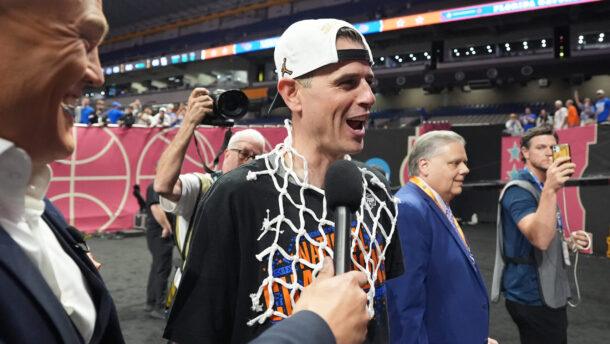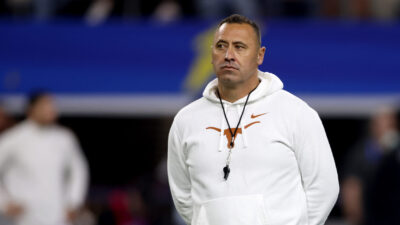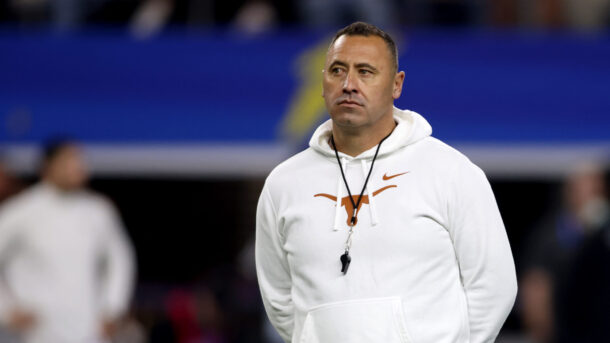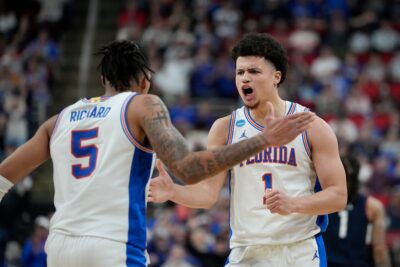Ad Disclosure
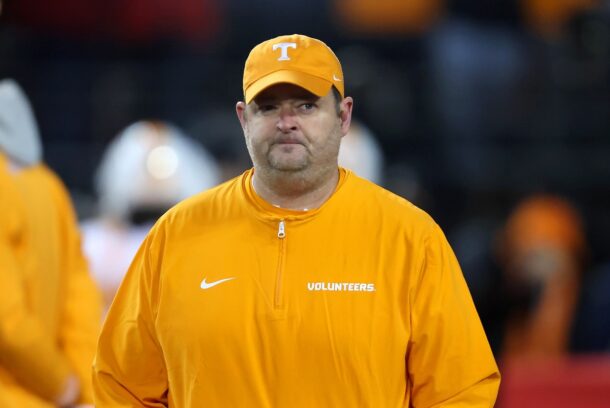
Why I’m setting the bar low for Nico Iamaleava’s successor in 2025
Two things can be true at the same time.
One is that Tennessee was well within its right to stand firm and not give Nico Iamaleava a raise after 1 up-and-down season as the Vols’ QB1. The other is that in all likelihood, Tennessee just signed up for a downgrade at the game’s most important position in 2025.
Why? And can’t a potential post-spring transfer be an upgrade?
It’s possible, but not likely. If you don’t believe that, tell me about all the great post-spring transfer quarterbacks who were a revelation from the jump. Joe Burrow was one of the best college quarterbacks ever, but as a post-spring transfer in 2018, he ran a limited offense during that first year at LSU. You could say the same thing about Jayden Daniels, though he was a mid-spring enrollee at LSU, where he also had his struggles with the expedited learning curve in Year 1 in Baton Rouge. The same was true of 2023 Payton Thorne at Auburn or 2020 JT Daniels at Georgia.
Or if you’d prefer a more local example, Tennessee fans, think 2018 Keller Chryst.
Even in the portal/NIL era, the post-spring quarterback market has typically been incredibly sparse. Most teams aren’t entering the summer with an unsettled quarterback situation, and if they are, they’ve usually got enough of a reason to keep those guys into fall camp in hopes that they can become the starter. Elite Group of 5 starters like Tulane’s Darian Mensah have already picked their Power Conference destinations (Duke). It’s the reason why both Iamaleava’s market and Tennessee’s potential post-spring QB transfer market could be more limited than some realize, especially when you consider that any intra-SEC transfer would have to sit the 2025 season.
Tennessee just put its foot down against overpaying a quarterback. The notion that the Vols will poach an elite starter seems ambitious. More likely is that Heupel and Co. will roll the dice on potential and let redshirt freshman Jake Merklinger and true freshman George MacIntyre battle it out. Those 2 have the benefit of experience in the system, though they have a combined 9 pass attempts at the FBS level. Merklinger was QB3 as a true freshman in 2024, but one would think there’s at least some confidence that Josh Heupel and OC Joey Halzle have in him, or else they would’ve bent over backward for Iamaleava.
Still, though. Set that bar low. Real low.
The Heupel system might be quarterback-friendly because of the mismatches it creates with tempo and wide-as-can-be splits, but it takes time to master. Hence, why Joe Milton was kept on board to bridge the gap from Hendon Hooker to Iamaleava. As a true freshman at the start of 2023, Milton ran the offense better than Iamaleava. Period. By the time Iamaleava got his first career start in a bowl game victory against Iowa, he had made significant strides. That only ramped up the hype train heading into 2024.
Even a potential grad transfer who has run an up-tempo offense will have a significant learning curve ahead. Perhaps that player will excel late in the season.
Just for a little perspective, Diego Pavia became the first quarterback to transfer into the SEC from the FBS level and earn all-conference honors in his first season. And as Tennessee fans liked to remind anyone who ranked Pavia ahead of Iamaleava in way-too-early SEC quarterback rankings, the Tennessee signal-caller got the better of that battle when those 2 teams met in the regular-season finale in Nashville.
The good news for Heupel is that because he’s on the heels of Tennessee’s best 3-year stretch in 3 decades, he has the luxury of making a more long-term play with who he pursues in the portal. If the expectation is that nobody is stepping into that situation and playing at an All-SEC level, Heupel could get creative. Perhaps he could pursue both a grad transfer in his final year of eligibility while taking a chance on a talented SEC quarterback who would have to redshirt in 2025.
I know what you’re thinking …
What would that even look like? Or rather, who would that even look like?
The wildest combination of that scenario would be Heupel getting longtime, oft-injured Utah quarterback Cam Rising and Alabama QB Austin Mack. Do I think that’ll happen? No, but Rising has been completely unheard of since Utah announced that it was moving on from him at the end of 2024. Rising doesn’t have much leverage at all, and if he’s healthy, he could absolutely roll with a scheme change in what’ll likely be a run-heavy offense. Heupel’s first 2 quarterbacks at Tennessee were guys who watched their original teams move on from them. Rising would fall into that camp.
Mack, on the other hand, enters 2025 with 3 years of eligibility left after spending Year 1 at Washington and Year 2 at Alabama, where he followed Kalen DeBoer. Sure, Mack would have to sit as a post-spring intra-conference transfer in 2025, which might rule out Tennessee as a destination. But if he believes he’s not going to be Alabama’s QB1 or even QB2 with decorated 5-star freshman Keelon Russell making waves in camp, a career reset with Heupel could be Mack’s move. The 6-6 Mack is still just 18 years old, but by 2026, he’d be the elder statesman in that room having spent 3 years working with some combination of DeBoer, Ryan Grubb and Heupel. That’d be an intriguing piece to add.
Again, though, don’t bank on splashes that big. More likely is that the market won’t line up with such moves. And even if they do, a 2022 Hooker season is completely unrealistic for Iamaleava’s successor.
Josh Heupel’s offensive floor is high, but how will that look in 2025?
To recap, a new-look QB situation will inherit a new-look group of receivers and a new-look backfield after SEC Offensive Player of the Year/workhorse back Dylan Sampson left for the NFL Draft. All signs point to this being a floor year for Heupel’s offense. In his 7 seasons as a head coach, Heupel has never had an offense finish worse than No. 35 in FBS (2023) and he’s never had a unit finish worse than No. 45 in yards/play (2024). Go figure that the latter happened during Iamaleava’s only season as Tennessee’s starter. Make of that what you will.
For all we know, Iamaleava was about to lead a floor season for Heupel’s offense. A guy who recorded a 38% adjusted completion percentage on 20-yard throws (12th in SEC) with just 4.9 yards/attempt on throws under pressure (19th in SEC) didn’t flash immense potential in the way that his lofty 5-star rating suggested he would. And as we know, most of Iamaleava’s best moments came in September.
The good news for Heupel is that his scheme should still keep new-look defenses guessing, and there’ll still be games in which the Vols put up 40 against lesser competition without breaking a sweat. Maybe that even happens in the season-opener against Syracuse in Atlanta, and the post-Week 1 overreactions will be that Tennessee’s offense is even better without Iamaleava. The bad news is that the games that will define Tennessee’s season will still be against proven, talented defenses like Georgia, Alabama and even Florida, who was a much better unit down the stretch.
It’s hard to fathom a world in which any version of Tennessee’s passing game poses a legitimate threat in conference play. If the Vols have a passing offense that finishes in the top half of the SEC, that’d be Heupel working wonders. The Vols averaged 25 points per SEC game last year (9th in SEC) and they put up 24.4 points per conference game in 2023 (11th in SEC). That feels like the ceiling for 2025.
Iamaleava’s departure might’ve been the right move for Tennessee, but no matter who his successor is, it would take a minor miracle to avoid a bumpy offensive season on Rocky Top.
Connor O'Gara is the senior national columnist for Saturday Down South. He's a member of the Football Writers Association of America. After spending his entire life living in B1G country, he moved to the South in 2015.
